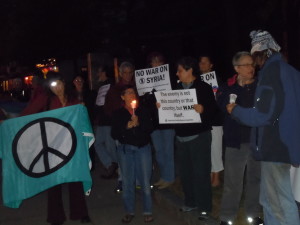Can Trying on a Kimono Be an Act of Cultural Imperialism?

As someone whose stepfather is Japanese, and who had to pose with my wife, my sister and her husband in the authentic yukatas (they’re like kimonos, but less formal and lighter weight) and obis (ceremonial belts) he gave us for some event–and as someone who has certainly seen my own Jewish heritage symbols appropriated and/or misused by mainstream culture–I can relate on some level her perspective.
But I also feel it’s crucial that we learn about the wider world around us, and that e.g. eating Thai food doesn’t mean you understand Thai culture. I think the experience of wearing the very elegant but very restrictive formal Japanese outfit with kimono and obi can provide a little window into what it was like to be upper-class female in 19th-century Japan. It saddens me that those teachable moments were lost in this.
I also do have concerns about how many other opportunities to touch another culture have been taken from us in the name of political correctness. A few years ago, a local high school even canceled a production of West Side Story because they were accused of racism–missing the entire point. Ditto the campaigns to purge high school classrooms of Mark Twain’s anti-racism classic Huckleberry Finn because it used the n-word, even though Twain’s purpose was to use that epithet (which, in his time, was probably the most common word to describe blacks) to build a bridge between the black and white cultures of 19th-century southern Illinois, right next to slave-owning Missouri.
To me, the correct response would have been for the museum to meet with the protestors and ask for their input in recasting the exhibit so it enlarged the educational aspect in a way that the Japanese-American protestors found appropriate–and for the protestors to have made that, rather than ceasing the exhibit, as their demand. Instead, it’s all this shouting at each other instead of talking to each other. Yes, you protest, but then you collaborate and build a greater whole.
Of course, an even more appropriate way to handle it would have been to involve local Japanese-American organizations in the planning and curation to begin with.


